Lovecraft & Racism
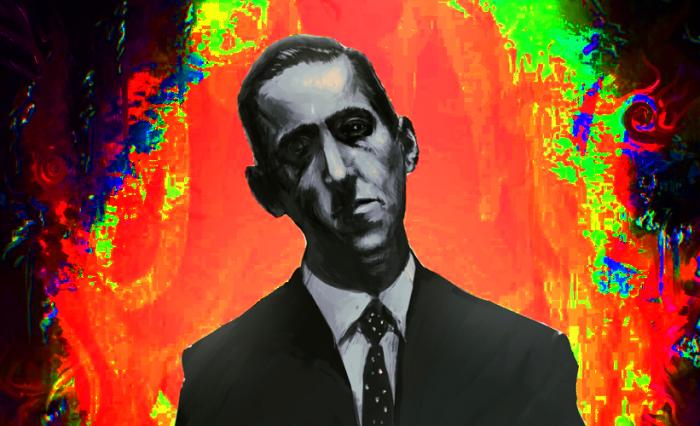
Many readers and bookworms can attest to the warm joy of getting their hands on a good book with an interesting premise that sounds unordinary and unlike countless other stories. It’s almost indescribable, as the writing and lore created by the author manage to take their readers into their world and bear witness to their vision. Roald Dahl, Frank Miller… there were writers who shared their perspective through their words and didn’t shy away from showing it in their books.
Especially authors who are openly racist and harbor a deep hatred and contempt for minorities. How many times have people read Margaret Mitchell’s superb Gone With the Wind and loved it without realizing that she wasn’t keen on equality between Black and White people and her opinion on the former was quite negative? How many French people have come to terms that Hergé, Tintin’s father, had been greatly inspired by colonialism because he lived during that time—which had been one of the most horrendous things to have happened to countries—but have enjoyed reading his works and keep enjoying Tintin because they have their reasons to do so? The same can be said about H.P Lovecraft and his views in his works.
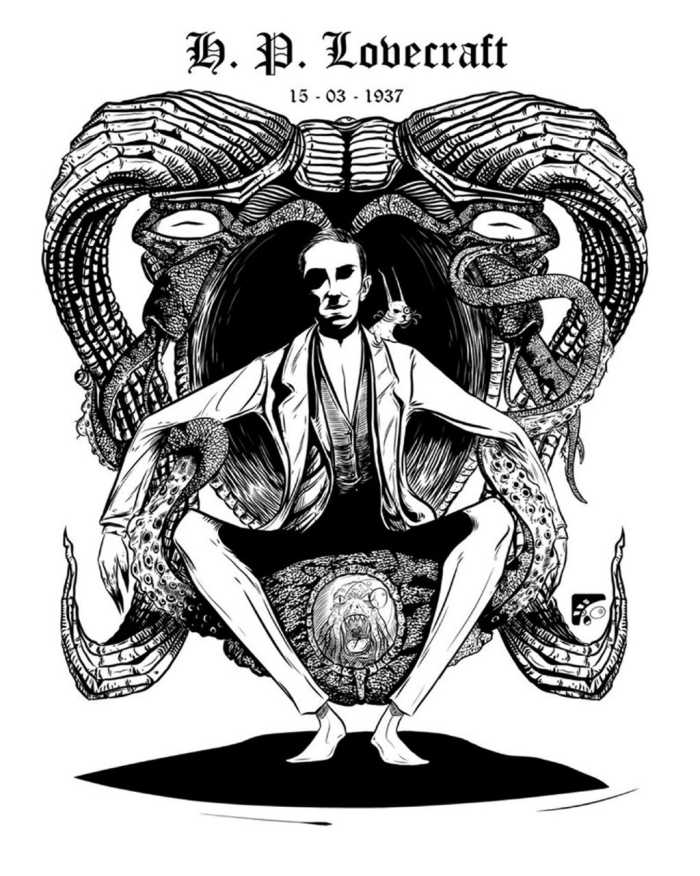
In Lovecraft’s case, his work in the horror genre has both immensely influenced many other writers over the years even after his death and given a new meaning to this literary genre in terms of imagination. It has shaped this genre and is still very popular to this day, although the extreme racism and xenophobia in his books can’t either be ignored or overlooked. One could say and argue that his views helped him in writing his stories, no matter how offending, nightmarish and controversial they are, because Lovecraft merely implemented whatever he felt towards indigenous and black communities and how he saw them. The Horror at Red Hook, for example, is one of his straightforward stories where he depicts Blacks and immigrants as ‘bringers of chaos in American law and order’, ‘monsters’ or even ‘contagions’.
It’s important to note that this short story was written during Lovecraft’s tenure in Brooklyn from 1924 to 1926, which was a time of shifting demographics affected by the Great Migration of Blacks from the South to the Midwest and the North. Apparently, Lovecraft even wrote a letter in which he described how living in Brooklyn was like ‘being imprisoned in a nightmare’. Such vitriol expressed towards minorities and immigrants is too palpable to be ignored. Nothing about H.P. Lovecraft and his works can be ignored.
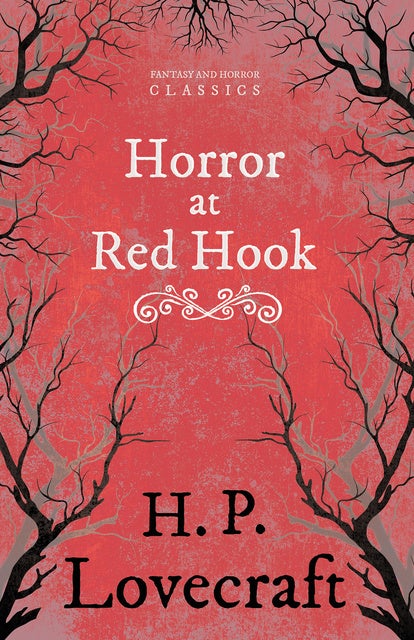
Although The Horror at Red Hook is undeniably great and fascinating because of the writing and imagination behind it, the inspiration is deeply racist-infused. That fact can’t be denied or overlooked. And it’s mostly not—it’s acknowledged as the key to Lovecraft’s insane imagination and his gift in showing his vision through his words. While many have acclaimed The Horror at Red Hook as a great story of the horror genre, does it really mean that these readers have accepted the blatant racism, outlandish and fiendish representations of minorities and immigrants? In Lovecraft’s case, acceptance about his racism and xenophobia in his works is a double-edged sword where his fans might be able to separate the artist from his art whereas others might not because it’s the perfect representation of his vision, but can’t help but love his books and imagination.
The matter might sound more like a no-win situation for both parties: on one hand, one writer’s racist-infused vision towards minorities ended up becoming his inspiration for his works—which worked really well for him. On the other hand, said racist-infused vision is extremely offending and insulting towards the communities targeted, even years after the books have been published and the author has long since died.
Racism, Fear & Xenophobia as Inspiration
All authors have their inspiration coming from a certain source, be it positive or negative. Stephen King has his, Margaret Mitchell had hers, James Baldwin had his… so did H.P. Lovecraft. The type of inspiration may have people in awe as much as it can disgust them to the core, depending on the writer’s views of the world and people. So if an author, who is particularly loved for their talent in writing stories with an original premise and themes they’ve mastered thanks to their understanding of their own perspective, happens to use controversial inspiration to fuel their imagination on paper, then they might have a reason to do so. In Lovecraft’s case, not only have his racism and xenophobia been used as his greatest inspiration to create some of the most nightmarish horrors his mind could muster, but they’ve also been incorporated to be shown and show his vision in the best way possible—which is the most horrible way possible to Lovecraft. This was a matter of “Show, don’t tell” that he mastered. And he was fine with his interpretation of everything and his nightmares. According to him, he was only expressing himself.
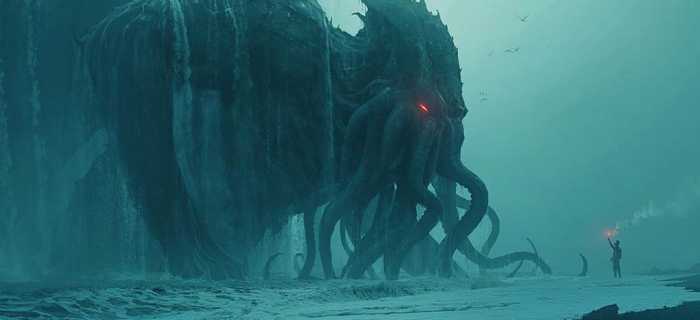
Apart from his racism and xenophobia, Lovecraft was actually influenced by several other major writers due to reading a lot of weird fiction during the mid-to-late 1920s, such as Lord Dunsany, who produced fantasy fiction with The Gods of Pegāna (1905) that introduced this idea of an “artificial mythology”. Lovecraft seemed to have loved that idea, which he used to develop his own fiction and thus, Cthullu came to life. Edgar Allan Poe was also stated to have been a major stylistic influence.
“There are my ‘Poe pieces’ and my ‘Dunsany pieces’-but alas-where are my Lovecraft pieces?”
H. P. Lovecraft to Elizabeth Toldridge, March 8 1929.
Next, Arthur Machen would be another critical influence for Lovecraft because of his works like The Great God Pan that had earned him popularity in the 1890s. Lovecraft referenced it in The Dunwich Horror. For The History of the Necromonicon, The King in Yellow written by Robert W. Chambers in 1895 was what inspired him to write it. Other great writers were also cited to have inspired Lovecraft, to the point that he’d praised them in his letters.
The point is that Lovecraft had bathed in many influences throughout his writing career, enough to tap into their potential and capitalize on it into his own works. By mixing it with his racism and xenophobia, he’d managed to write incredible horror stories that have built him an impressive reputation in the genre, have earned him fans throughout the years.
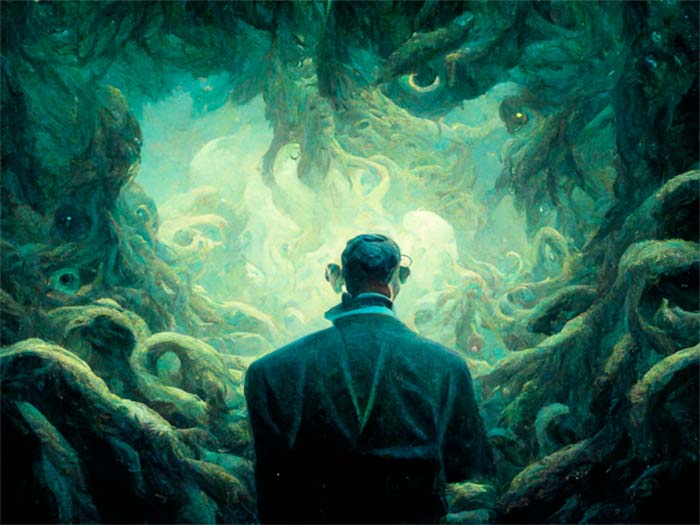
However, people shouldn’t kid themselves. Racism and xenophobia clearly aren’t acceptable, as it’s akin to a blinding sentiment fueled by an intense hatred and irrational fear of the unknown. When Lovecraft was writing his short stories and making up his infamous monsters, can anyone say that he once tried to befriend a Black person before assuming they were spawned by the devil? No one actually can. This is the same man who also proclaimed so many infuriating things, such as “the Negro is fundamentally the biological inferior of all White and even Mongolian races.” 1 or even stated that Hitler’s vision was ‘romantic and immature’, after the Nazi became Chancellor of Germany. He even said that he liked the man!
Lovecraft never attempted to conceal his bigoted views in his writing. He was very straightforward with his beliefs and ideology. In fact, his inspiration just can’t be magically wished away because minorities feel extremely insulted (as they should) when this writer’s contempt can run so much deeper; his 1912 poem “On the Creation of Niggers” depicts Black people as ‘semi-human’ creatures to fill the space between Man and Beast after the gods designed them. By the title alone, readers can already have a foretaste of Lovecraft’s honest opinion on Black people. Not only did he not see them as ‘men’ like white people were made in the image of gods, but he saw them as part-beast, part-human—never completely human, but a bastardized and insulting version of this writer’s perception of Black people. Minorities would never be on the same level as white people according to Lovecraft, and that perception may have been unlikely to change at first, whether it was in his literary works or in real life.
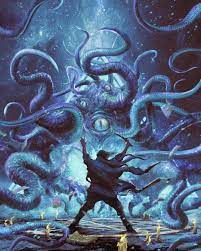
In short, Lovecraft felt validated in his perception of all minorities both in his stories and in his life. He truly felt like he hadn’t done anything wrong and was firm in his beliefs… but what does that mean for the fans of his works? Does this mean they actually and fully accept that Lovecraft was an honest racist and have come to terms with the true source of his inspiration for all of his stories and no longer have any problem with it—if they had any to begin with? Or are they actually content in ignoring and outright denying his racism? Whatever the answer, it can also be a personal decision of theirs.
Even if Lovecraft did end up changing his views about minorities, his previous views about strangers remained the same. It’s amazing to see how he managed to come up with so many plots and creatures that are both out of this world and a perfect representation of his fears and nightmares; choosing a literary genre is an important part of the writing process for any writer, because it would then guide them into gathering all the ideas to write each chapter, to formulate the plot and create the characters. For example, the mangaka Yukito Kishiro, creator of the Seinen manga Gunnm, has had several inspirations for his legendary works that can be considered in the same league as Ghost in the Shell, Akira and Blame: the mix of dystopia and philosophy and other themes are so well-developed in a way that people just can’t help but love these universes. So much that Yukito Kishiro’s Seinen has got its live action adaptation, titled Alita: Battle Angel (2019).
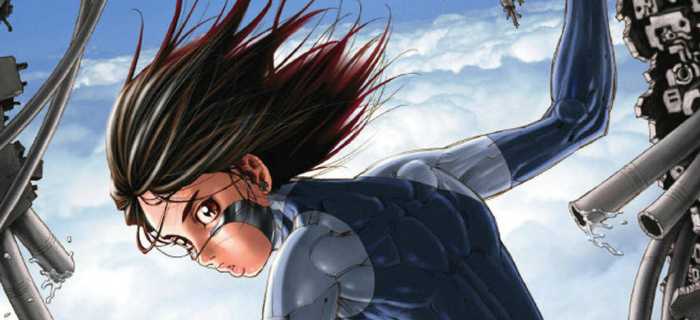
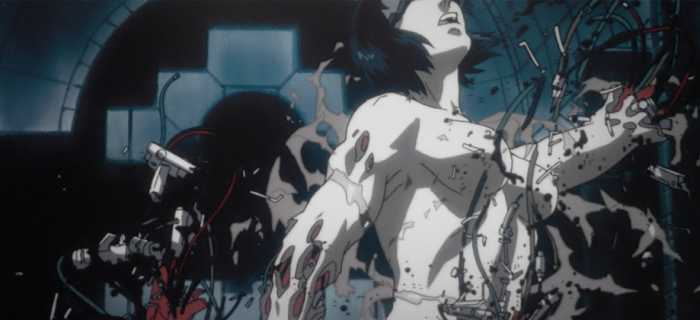
Just like Lovecraft, Yukito Kishiro felt validated in his perception and vision. The two are polar opposites on every field possible due to their psyche, but their inspiration is what drew fans to their works. Although Lovecraft’s might stem from extremely negative thoughts and views, they still worked out to give truly horrible monsters that have inspired others years after Lovecraft’s death. The Great Old One Cthullu seems to be a personal favorite, as the entity has been used as an inspiration in other forms of media, such as the series Love, Death + Robots in the eighth episode of the third season titled “In Vaulted Halls Entombed”. The gigantic and malevolent creature that’s been imprisoned deep in the cave where the American soldiers have ventured into to recover their target bears a very strong resemblance to Cthullu because of its inconceivable appearance, but also because of the apocalyptic and nightmarish vision it had sent to the remaining soldiers; the chaos and death that otherwordly monster would bring upon the world is enough to remind everyone of the mighty Great Old One created by Lovecraft.
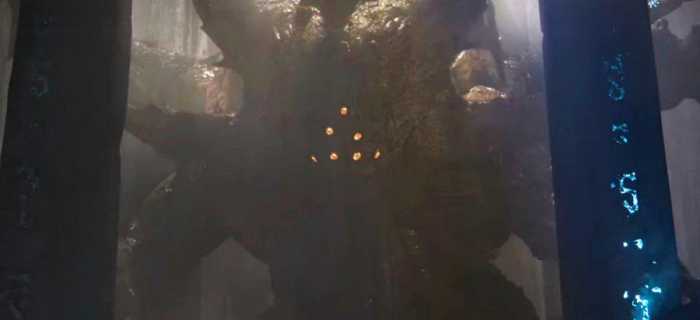
Hearing that monster growl “Release me…” over and over like a mantra around the two surviving soldiers of their group—until there’s only one left standing—is extremely unnerving. And its appearance is more than horrifying; the multiple yellow eyes look like they can see deep into someone’s soul and strike sheer terror. Everything about that monster was enough to drive the last soldier alive insane, so much that she destroyed her eyes and eardrums with her knife to no longer hear or see the beast. It is unknown how she managed to get out of the cave alive, albeit permanently disabled without her sight and hearing, but the fact that she’d seemed strong-willed enough to resist the Cthullu-inspired monster’s voice and brainwashing to blind herself and destroy her eardrums for good is a strong callback to Lovecraft’s incredible imagination concerning horror.
Again, Lovecraft’s own inspiration for his works stemmed from his distorted and terrible perception of minorities, his racism and xenophobia that still aren’t acceptable to this day, but… can anyone who used his monsters as inspiration for their own works say that they aren’t grateful for the late writer’s imagination? Lovecraft’s literary work has been very influential throughout the years, so much that Cthullu’s mythos has been used and mentioned in so many forms of media from pop culture—films, games, video games, television, etc. One nod that’s quite funny is featured in Scooby-Doo! Mystery Incorporated, where the episodes “The Shrieking Madness” and “Pawn of Shadows” guest-star Professor H.P. Hatecraft, who is the famous author of otherwordly horror stories. His name is a play on Lovecraft’s, which is still funny to this day. Even the Marvel and DC universes included some Lovecraftian horrors, such as Starro, Anti-Monitor, Nekron (DC) and Shuma Gorath, who’s part of the “Many Angled Ones” (MU).
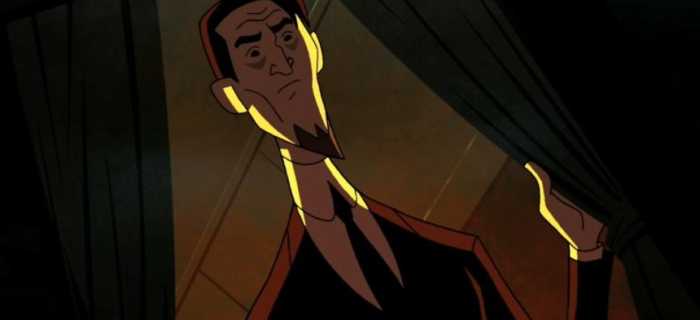
There’s even a novel titled “Lovecraft Country”, with an adaptation that came out in 2020 where the protagonists end up confronting Lovecraftian monsters, all the while facing the racism of the Jim Crow era. There were even some shoggoths running around in a forest in Lovecraft Country. Although the series left some people a bit… confused, it had nothing to do with Lovecraft’s universe. That realization, upon watching the show, must have annoyed the real fans.
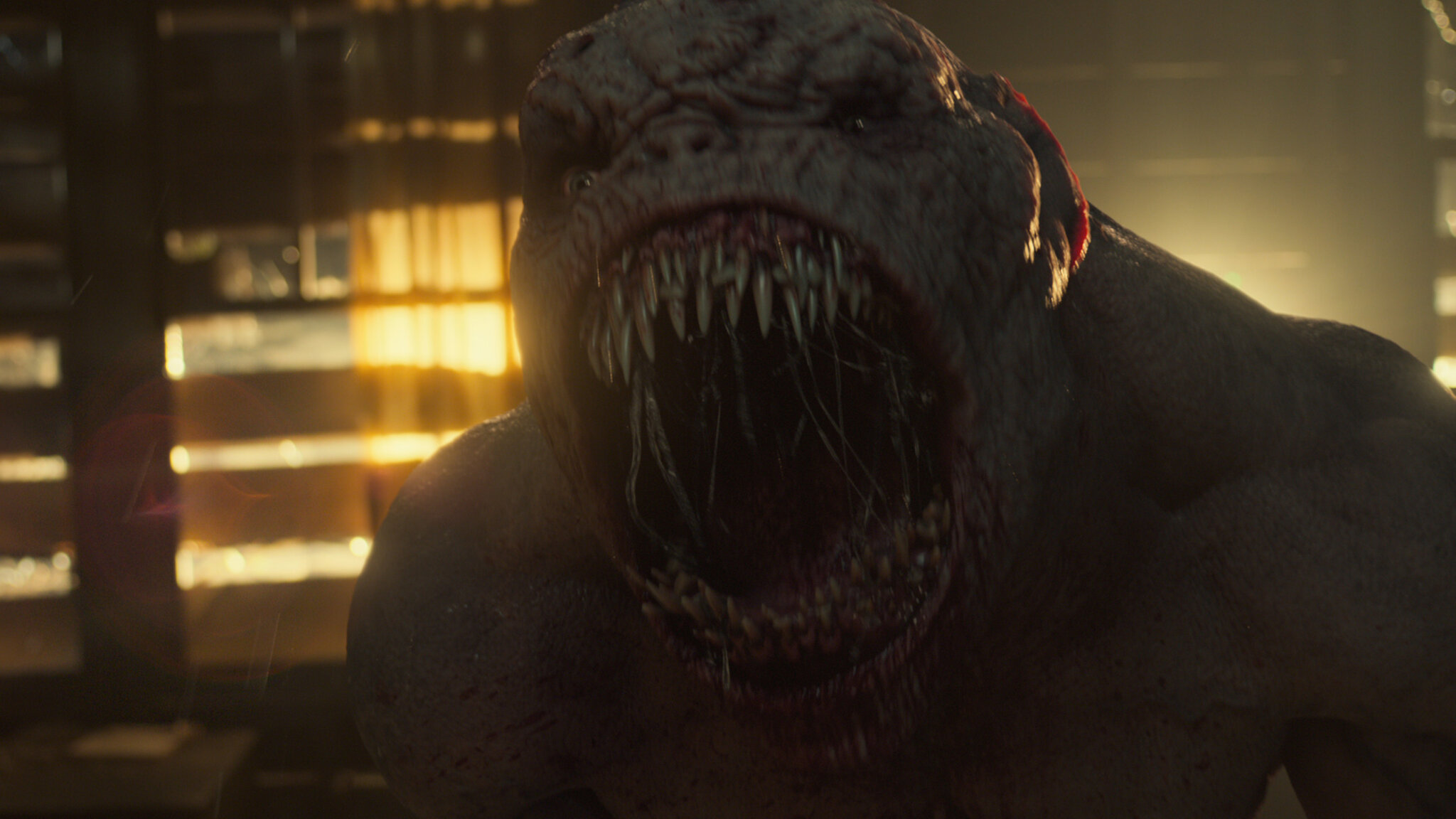
It would seem that, although all these people who’ve benefited from Lovecraft’s infamous monsters must have known about his racism and xenophobia towards minorities, they saw value in his works. They saw his imagination as something precious that should still be kept alive through other forms of media, thus accepting and seeing his influence as something positive for their own works. Maybe they’d managed to separate the art from the artist, have accepted the fundamentals of his inspiration (because these are what made his literary legacy extremely famous in the horror genre and they literally can’t do anything about it) and have decided to make good use of his talent to keep his entire legacy alive?
Separating the Art from the Artist
For some people, being able to separate the art from the artist might be very easy whereas it’s the opposite for others. The phrase “Separating the art from the artist” raises mixed and conflicted feelings when said artist in question is a person that’s done some unforgivable and unsavory things as a human being that are condemned while being an amazing artist. However… some writers, who are people of color, still seem to struggle with Lovecraft’s legacy to this day; in the article titled “Writers of Color Continue to Wrestle With Lovecraft’s Racist Legacy“, some of these writers of color took the liberty of speaking their opinions about Lovecraft and were quite open with their criticism of his works.
“The dude was a wild, rabid racist in a very racist time in a very racist country. He really did weaponize literature in a way that was very damaging to people who were reading it.”
Fantasy author Daniel José Older said in Episode 237 of the Geek’s Guide Galaxy podcast.
Next, author Silvia Moreno-Garcia said that many writers of color were ‘reluctant to contribute stories’ to her anthology, which was a book of Lovecraftian fiction written by women. She’d recently won a World Fantasy Award for it. The reason all these writers of color were so reluctant was because of Lovecraft’s racist views.
“Some people of color would tell me no, no, Lovecraft was racist, so I can’t write that. And I would be like, ‘Well, yeah, but why don’t you put your own spin on it?'”
Was what Silvia Moreno-Garcia stated.
In a way, people can see where Daniel José Older comes from by saying that Lovecraft weaponized literature in such harming way. It certainly does feel like he expressively used literature and the way of words to convey his negative feelings towards minorities, as if he truly wanted to show just how much his views bothered him to the core.
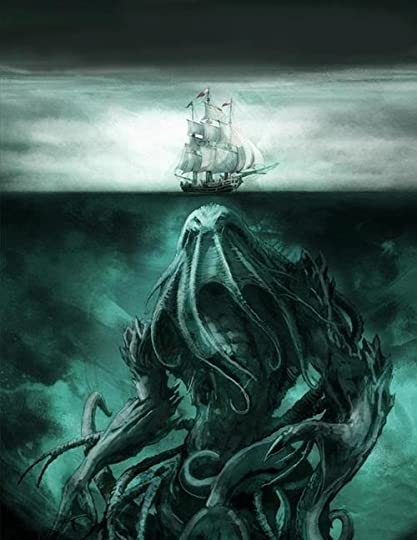
If people were to separate Lovecraft from his works in order to just focus on the books, there’s a possibility they would rather try to know the author through his creative writing, which is what has been done throughout the years. H.P. Lovecraft was a writer first, so the interest and curiosity would certainly prompt other artists in the same field to check out his works despite knowing his views regarding minorities. The love for art is what brings people sharing the same common interests together. Should some people find themselves unable to separate the art from the artist, that’s their right and belief. Nonetheless, the fact that Lovecraft’s work is still thriving to this day and is being used as an inspiration for other forms of media shows that people can accept that the author was a master at his craft and respect his talent for creative writing. That doesn’t necessarily mean they condone his views when he was alive, but now that he’s long dead, one question remains: should H. P. Lovecraft only be remembered for his racism and xenophobia or his talent for creating terrifying horrors that came to be dubbed as these infamous ‘Lovecraftian monsters’ that are being seen as an inspiration to so many people—such as Stephen King himself—in this day and age? Should he be shamed despite having died almost a century ago?
Is there even a right answer to this?
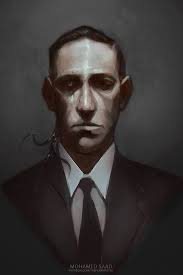
The man can be despised for his beliefs and views, but none can deny that something really good and valuable came out of him. Lovecraft became an inspiration and continues to be one for his work, which is good. He was quite unique in the horror genre, as his writing in itself managed to bring out fascination, dread and fear through his detailed depictions of his monsters and stories, their mythos that are otherwordly and unheard of and lore that has entirely been created by him. Shouldn’t Lovecraft be honored after everything he’s achieved as a writer and an artist instead of being destroyed as a man who had a very negative perception of minorities back then? He can’t defend himself anymore, but the past shouldn’t define his work nowadays. If Lovecraft can’t be celebrated as an artist, then maybe all artists who’ve been racists and xenophobic prior to their death should have their literary works trashed as well. Maybe Margaret Mitchell should be called out for her racism in Gone With the Wind and be shamed despite having died long ago.
Maybe Hergé should also be called out for having been inspired by colonialism to create Tintin and shamed for it.
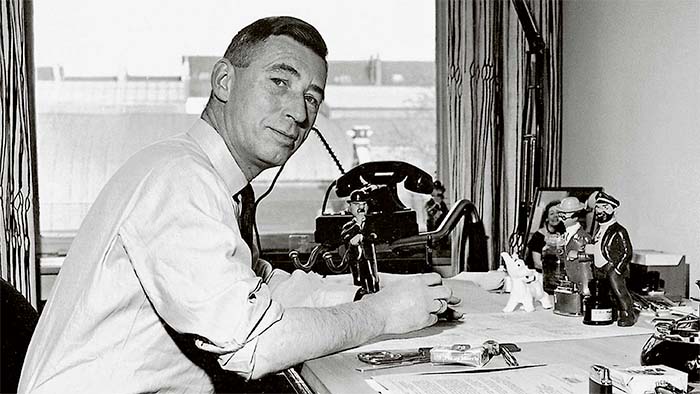
People may fully disagree with their views and perception, but they can’t do anything about it. They can’t go back in time to force these writers to change their perspective—that would probably ruin their literary work and it wouldn’t feel or be the same. Gone With the Wind is loved the way it was written, Lovecraft’s literary work is also loved the way it was written, and Tintin seems perfect the way it is and that should be it. Inspiration comes from everywhere, even from the most unlikely people and places. Negative as it was, Lovecraft’s inspiration for his works actually turned out to have created something that can be seen ‘positive’, artistically speaking.
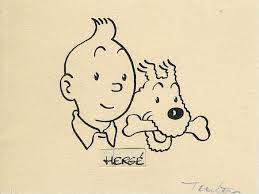
At the end of the day, no one can tell the minorities targeted by Lovecraft how to feel about the way they were depicted in his works and how they should process it. Not the fans, no one else. The fans of the genre might have accepted the fact that the writer was racist and xenophobic—which is something that can’t be controlled or can’t be changed because the books have already been written and published. They might have accepted it for their own benefit; either they don’t care what kind of man H. P. Lovecraft was and just cared about him as a writer or they’ve realized they’d never have his literary works the way it is nowadays had he never been racist or xenophobic.
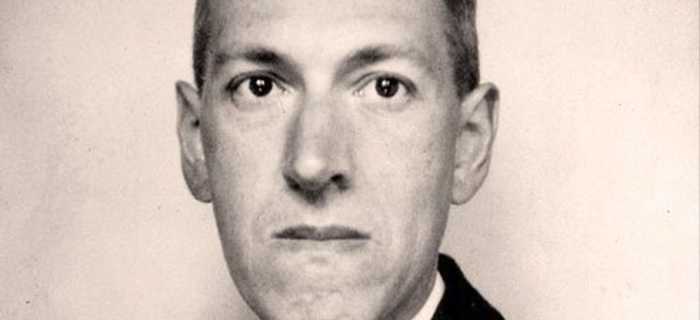
Works Cited
- We Can’t Ignore H.P. Lovecraft’s White Supremacy: Lovecraftian Narratives of Race Persist in Contemporary Politics”, Wes House, September 26 2017. ↩
What do you think? Leave a comment.











Lovely read.
The xenophobia of Lovecraft’s early work gradually gives way to a sense of wonder in the later stories, in which beings that are different from us – even alien – are not necessarily vile and instead engender sympathy.
For instance, the 1936 collaboration “In the Walls of Eryx” has an astronaut on Venus change his mind about the inhabitants: “As the end approaches I feel more kindly toward the things. In the scale of cosmic entity who can say which species stands higher, or more nearly approaches a space-wide organic norm—theirs or mine?”
Is that enough to eclipse the “On the Creation of N” poem? I don’t know. But I do think you can see sentiments in Lovecraft’s work that separate it from his personal racism.
He does appear to have been kind of a racist, which doesn’t invalidate the other things people see in his work but does maybe make him not the best role model.
He wasn’t kind of racist. He was abjectly and overtly racist. He named his cat a slur. He wrote poetry about his hatred of Black people. He may have improved with age, but was clearly extremely racist.
Lovecraft’s paranoia and general insecurity about the world is what makes him interesting, and what keeps his fiction alive and relevant, and in my opinion this is not an argument about whether we should continue to read him. (In fact, I’ll go as far as saying that we *should* read him.)
Lovecraft’s letters are brilliant and fascinating.
Racist, yes. Terrible wordsmith, though? No.
I can appreciate the art without admiring the author. It’s perfectly possible to read a story and not adopt the author’s views.
True but in Lovecraft’s case there is surely a link between the degeneracy he portrays in the books with the degeneracy he imagined he saw around him.
The phobia is simply translated into a fictional context–the fantasy horror it draws its power from Lovecraft’s real feelings of fear and loathing
I think Lovecraft’s fear and loathing were more about sex and disease than they were about foreigners.
Reading about Lovecraft makes you realise that he was a profoundly disturbed, possibly mentally ill man. He was certainly incredibly fearful of other races. But he was still a brilliant writer.
I think he’s a great writer, but I think his racism clearly fed his work – that fear of the unknown seems to me to from the same place as his fear of non-white races. He did marry a Jewish woman, so maybe he wasn’t quite a bad as he was made out, although she said she did have to keep reminding him of this every time he came out with an Anti-Semitic remark…
In my opinion, I truly believe his racism DID feed his work. He incorporated it so well in his works that I’m somewhat amazed it managed to help his creativity and imagination towards his mythos and everything his mind could conjure.
Yes, it is strange, isn’t it? Fear of other races and peoples permeates Lovecraft’s work.
I think there’s a difference in degree between reading Lovecraft’s fiction – which sublimates his fear and disgust in fantasy – and reading a baldy, viciously racist poem about real people (rather than vile, hybrid fish-people or amorphous tentacular horrors).
It’s OK to like problematic art, and it’s possible to enjoy something while remaining aware and critical of even serious flaws.
Another influential early figures will have some skeleton in his or her cupboard. Clark Ashton Smith, Robert E Howard (who is far more influential on the bulk of what’s published as fantasy these days), Tolkien…
Tolkien gets a surprisingly easy ride given that his books are not simply racist but describe a world where racism is fully justified by underlying reality.
How exactly is racism “fully justified” in his works?
Context, context, context. Lovecraft wasn’t some weirdo with outre views, many people felt the same way in his day. IMO we shouldn’t castigate him for having views that were more acceptable then but not now.
No, he was significantly more racist than most people even in his time.
Exactly. I think it’s a reasonable defence to make about someone like Tolkien, who would be thought a bit racist by today’s standards, but not at all by the standards of his time.
If Lovecraft were to meet me and describe me, I would be little more than one of the “mulattos” from the Louisiana Swamps, a “hybrid breed ” or “mongrel celebrant” or perhaps one the degenerate islanders* with whom the Innsmouth sailors interbred, indeed he underlines this in his description of Fishhead the harbour master, highlighting his dislike of race mixing.
Yet I stand as one of his most fervent supporters. I cannot connect Lovecrafts paranoia and racism, a foundation of his work, with any kind of insult or offense that someone today might take.
If someone was to write this today, that would be a different matter, but taking the work in context its entirely harmless to me. To me, it represents the man who created the Cthulhu Mythos, and his body of work, not the personal views of a man from a different era.
Lovecraft is probably the most important figure in the development of contemporary weird fiction. He was not nearly as bad a writer as his critics make him out to be. He established a kind of fiction which expressed his anxiety about the world and created a model for others to follow. And there’s the problem, because his “anxiety” took the form of attitudes to race — not just “people of colour” but European immigrants to the USA — which were pretty extreme even in his own day. He disavowed early support for Hitler (and nb he died well before WW2 and the Holocaust) but still believed in segregation. It is certainly possible to continue his tradition of exploring one’s anxieties through weird fiction and not be a racist — see Ramsey Campbell’s work for instance — but reading Lovecraft can be uncomfortable for the wrong reasons. Like many geniuses — if he was one — he was a misfit.
Poe was even more of a racist than HPL.
On what do you base that claim?
Maybe we could add Lovecraft to the growing list of writers who challenge post-literacy:
Houellbecq, Dante, Morrison (Tony), Walt Whitman?
Maybe the labelling of writers and their books does more harm than good when the effect of charges and accusations of sexism, racism, homophobia are affixed to books. This activity preempts the reader’s own critical engagement with the text, thus reducing their ability to engage with the work for themselves and build up their own critical discernment of the text.
Homophobia was a neat label used to attempt to censor Dante.
Lovecraft had a vast and lasting impact on multiple genres, but a crazy racist all the same.
His racist poem is really a nasty, ugly piece of work.
I must admit I felt some trepidation reading the title of this article, as there have been a lot of takes I really don’t agree with on this subject – saying that Lovecraft wasn’t actually really that bad, or that his views were perfectly normal in the time period (and as such should be excused, I guess?). But this article handled that subject quite well, and I do agree that it’s good to note that he’s far from the only writer to include his bigotry in his work. Of course, some of his work is more obviously bigoted or inspired by his bigotry than some other writers.
Hey, thank you.
Honestly, even I felt a bit anxious as to how I’d tackle this subject. It’s a sore and very sensitive one. I’d NEVER outright say that Lovecraft wasn’t that bad or his views weren’t extremely negative and hurtful, considering he was definitely convinced of his beliefs. It’s like those idiots who claimed that Jeffrey Dahmer ‘didn’t hurt’ his victims too badly when he freaking UNALIVED them!
What were the takes you’re talking about? Which authors?
Oh mostly just takes I’ve seen a few times online – said by people with little real knowledge, I have a hunch. Doesn’t make it feel any less incorrect, but hardly anything huge.
Artist is separate to the art. Should we disregard all the writers from the age when racism was endemic?
I don’t think anyone said that.
His work is great but he was an unpleasant person.
I don’t care if he was a racist. I enjoy his work, and this is all that matters to me.
HP Lovecraft was a person of his time and that’s pretty the normal culture then. Regardless, we honor his writing, not the man.
It’s not trivial to be on the receiving end of racist abuse. It’s not revisionist to point this out.
Lovecraft’s views were at the fringe of eve what was acceptable at the time. Saying so is not rewriting history.
I think it all depends on the answer to the following question: Does the artist express views so opposed to my real-world interests that I neither can nor want to appreciate the quality of that artist’s work?
The answer is unique to each individual, but if enough people have a roughly similar answer, then the response ceases to be individual and becomes political.
I personally see Lovecraft as a bigoted person, but this cat pretty much hated/feared everybody. I think people took from his work what was interesting and discarded the rest. His bigotry died with him – his concepts live on.
I grew up reading Lovecraft’s stories, and I still enjoy rereading them. I also think that in many of them, it’s pretty clear that he wants his readers to root for the exotic miscegenated demon creatures, rather than the goody-two-shoes white New Englander “hero”.
Lovecraft was more overtly racist than his milieu, and there were plenty of major, mainstream, progressive voices at the time who people like Lovecraft basically ignored. Dismissing his racism as simply ‘of his time’ and irrelevant to his work ignores both the egregiousness of many of his racist beliefs and the way in which ideas about race are pervasive in his work.
Was Lovecraft a racist? Yes (it’s been a long while since I’ve read anything by him though), but that doesn’t mean that we should blot him from history or that he should not be honoured for his contributions.
People are complex and flawed in general. This includes writers. The peculiar and unique mix of Lovecraft’s personality and environment somehow led to both his racism and to the originality of his writing.
A friend of mine who is Jewish asked a lady who had known Lovecraft “Was he really an anti-Semite?” She replied, “Yes, he was – and he would’ve been very upset if he knew that that hurt your feelings.”
Lovecraft wasn’t just afraid and hateful towards non white peoples , he was afraid and hateful toward nearly everything.
Great breakdown! One obviously must separate the author from their work. If we eliminated every writer who was racist, or sexist, or homophobic, or whatever, there wouldn’t be anyone left.
Lovecraft wrote some very racist stuff. Lots of writers did. This doesn’t make it okay.
Ezra Pound was a fascist and a traitor. F Scott Fitzgerald had his wife committed so he could play the field. Ted Hughes burned dead wife’s Sylvia Plath’s diary and notebooks. Charles Dickens abandoned his family for a teenager. William S. Burroughs shot his wife. Need I go on?
Nobody is trying to ban Lovecraft. Stop with the strawman arguments. 🙂
And they are criticised for all those things without a load of hysteria about “wahh! censorship ban them”!!!
No-one, as far as I can see, is suggesting that Lovecraft should be banned or that his influence on the genre should be ignored or forgotten. Lovecraft’s views clearly informed his writing (its saturated with the fear of the Other) but that doesn’t render his writing worthless or diminish his influence.
We have arrived at the crux of the problem. H. P. Lovecraft is a great writer, one could even now say a great writer, whose work has enriched humanity and allowed us to better cope living in a universe that is without any meaning except what we create for ourselves. He also held racist views. Many people, including myself, believe that the former outweighs the latter. Some believe that the latter cancel out the former.
There is a lot of people who love Lovecraft and understand that his fear for the unknown, including unknown races was the fuel for its craft.
There is much to admire in Lovecraft’s fiction, and much that is clumsy, and amateurish. The darkness is always there, as is his life-long fight against himself. He loved to pose, and like many socially-isolated posers, seemed to be ignorant of the real old implications of his words. There is derivation galore – many of his stories are pastiches of Blackwood, Dunsaney and Machen, but his singular contribution – rejection of classic horror tropes and their replacement with cosmic indifference – propels it into new territory.
I can respect – indeed love – the work and the man, but still see the darkness and speak against it.
If you read Lovecraft you can see a change of attitude in his books, specially one of his last, The shadow over Innmouth. You just have to read the end to get he changed.
He’s so terrified of the human race being contaminated or taken over by grotesque near-human figures from elsewhere. It’s hard to read as anything other than sublimated racism. I haven’t read his letters, just his fiction and found a lot of it very uncomfortable.
It may actually be the other way around. Lovecraft appears to have suffered from a pathological fear of ‘otherness’ in general. His racism was a conventional expression of his fears. His fiction is another.
One only has to read Lovecraft’s racist remarks to understand that there is something more going on there than so-called ‘respectable racism’ of the common early 20th-century, pre-Nazi kind. There is an hysterical edge and gross exaggeration that seems to proceed from something very deep-rooted. This would probably have found expression in something other than racism, had that particular belief system not been so readily to hand.
None of this excuses Lovecraft’s racism. However, I think it does make a difference to how we regard his fiction. There is a danger that the fiction will be dismissed because of the racism, as if the former were the direct product of the latter, rather than both being consequences of something prior to either.
He’s still important as a writer even with the racism, for the distorted sense of wonder that flows through his best stories.
It shouldn’t matter whether you are a product of your culture or not if your beliefs are vile or reprehensible. Ethics, you know.
HPL was undoubtedly racist, but he was also pathologically xenophobic. I believe he recognized his own mental illness at times and sometimes tried to overcome it. Perhaps I am giving him too much credit, but I have the sense that he did make some effort to fight through his own intolerance. This doesn’t excuse his offensive writing, but I do think it makes him a little different from someone who proudly and stubbornly wrote racist propaganda.
Most of Lovecraft’s fans acknowledge that he had beliefs that are unacceptable today.
These elements are often seen in the way he portrayed certain characters and cultures in his stories but Criticizing lovecraft’s racism doesn’t necessarily mean dismissing his entire body of work.
acknowledging Lovecraft’s racism is crucial for a comprehensive understanding of his work and its impact. While critiquing the problematic elements, it’s also possible to engage with Lovecraftian themes in a way that fosters positive change and promotes inclusivity within the genre.